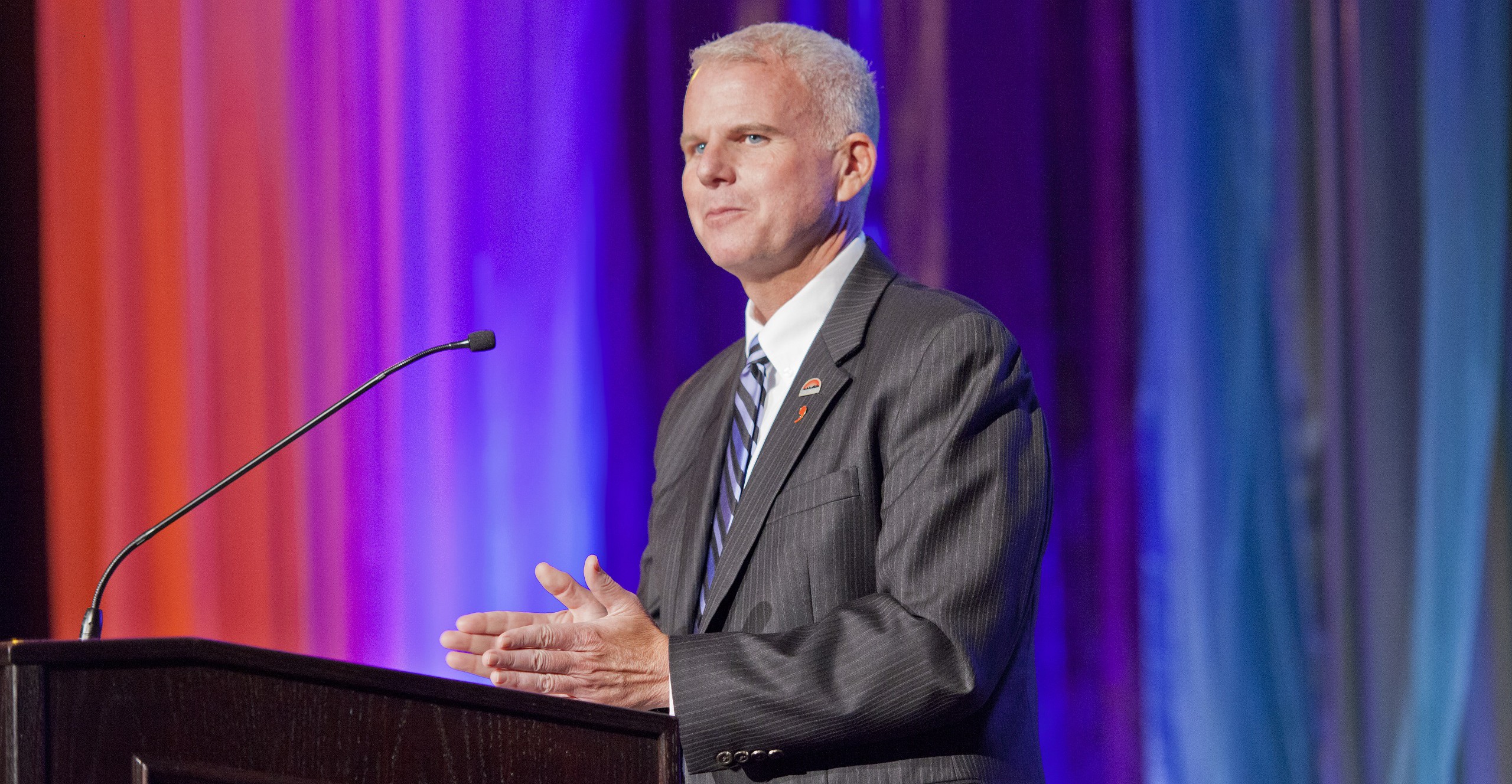Why a minister is at the helm of the ACLU of Ohio
This op-ed first appeared at Cleveland.com and in The Plain Dealer.
When I became executive director of the American Civil Liberties Union of Ohio in July, many people said they didn’t know I was an attorney. For the record, I am not.
I am an ordained United Church of Christ minister, having spent nearly 30 years working in local churches and at the UCC’s national headquarters in Cleveland.
True, the ACLU is known for its high-profile litigation, having championed in court many of our nation’s bedrock understandings of equality, fairness and justice. But litigation is just one piece of the ACLU’s integrated approach, with advocacy and education being equally important to advancing our mission.
On the same day I started in Ohio, another minister – a Unitarian Universalist minister – began as head of the ACLU in Iowa. We join a long tradition of clergy, social workers, educators, journalists, policy analysts, and other ordinary folk who believe that protecting civil liberties and advancing civil rights is everyone’s responsibility. If we only leave it to the lawyers, God love them, we are missing the point that “We, the people” means all of us. The ACLU’s urgent work is safeguarding that lofty, inclusive constitutional principle until it is realized for everyone.
The ACLU was actually co-founded by a Unitarian minister in 1920, and the ACLU’s first national chairperson, a Methodist minister, served for two decades. Throughout its history, countless rabbis, priests, imams, ministers and laypersons have actively supported the ACLU.
In more recent years, the Rev. Barry Lynn, a UCC minister who is also an attorney, jumped between leadership roles with the ACLU and UCC, before heading Americans United for the Separation of Church and State. Lynn, like many clergy, understands that any faith scheme that needs propping up by the state is not only unconstitutional, but inherently lazy religion. Good church doesn’t need the government to do its bidding.
When recalling American history, too many of us cling to the simplistic idea that pious Pilgrims and Puritans escaped persecution in Europe to find religious tolerance in Massachusetts. Period. But we overlook the violent theocracy they quickly established – banishing, even murdering, Quakers, Baptists, Anglicans, Roman Catholics, and Jews, all while persecuting Native Americans and their spiritual practices. Nearly 400 years later, we are still living into the ideal of religious tolerance for all, including the non-religious.
The ACLU advocates for the rights of everyone to practice their faith without government intrusion, insisting that government must show no preference for one religion over another, nor prefer religion over non-religion. This stance, in my view, is active tolerance, not selective.
As a minister in the United Church of Christ, the theological descendants of those first exclusionary Pilgrims and Puritans, I know my own faith tradition has grown up considerably in its now-robust support of civil liberties, but it’s not been without struggle. Our nation, too, struggles mightily.
At a time when civil liberties are under daily threat, the free press is maligned at every opportunity, immigrants are threatened and scapegoated, systemic racism pervades all our social structures, and increasingly militarized police provoke fear rather than calm in the communities they serve, the ACLU’s mission has never been more urgent or compelling.
It’s why I could not be more proud, as a Christian minister, to be working for the ACLU of Ohio, spending my days with committed people across all religious and political spectrums, to safeguard and expand freedom for today’s maligned minorities. Few things, for me, are as eternally important.
